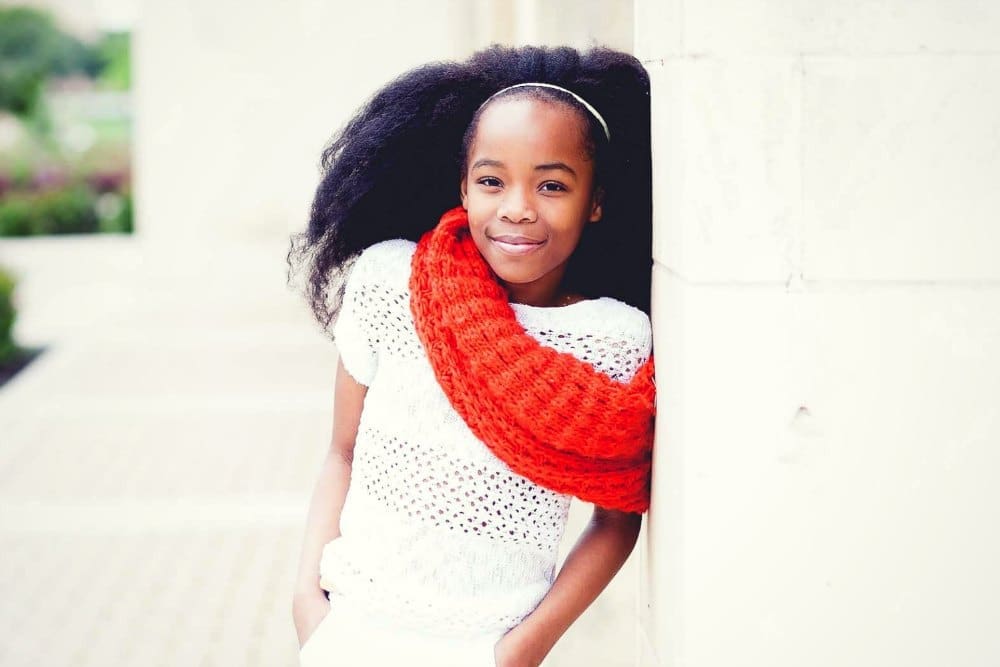Your teenager has confided in you this week. She told you that she can’t stop thinking that she’ll fail her next set of exams. The thoughts won’t leave her and the longer they go on, the more convincing they become. ‘This isn’t the first time this has happened’, she says.
She talks through her tears about how overwhelming it is to live like this. She keeps having these thoughts – that her friends won’t like her, or that something might happen to you when she isn’t with you, and now she wants you to know. When this happens, it can feel as if you are watching your life from afar. As if it isn’t even yours anymore.
As a parent, the desire to control your world can feel overwhelming. Especially, if your child struggles with unwanted thoughts. In the same way you try to control your world, so does your child. This need your child has to control their world is the birthplace of a vicious cycle of unwanted thoughts. Here are five ways to help your child manage any intrusive thoughts that might be pushing a little too hard for attention:
-
Training our thoughts is like training a puppy.
Explain intrusive thoughts in a simple way. Try this:
‘…unwanted thoughts are like that puppy that keeps dropping his ball at your feet. The more you throw that ball, the more he chases after it and brings it back each time with more energy. As you start to ignore him, he won’t go away immediately. But soon he’ll lose interest and leave you alone. When you want to wash your hands for the 5th time in one hour, remind yourself that it will only feel good in the moment. You will keep needing to do it over and over again. Do your best to ignore the thought, and not act on your need to get reassurance by washing your hands one more time.
Alternatively, put a limit on it. Make yourself the deal that you’ll only wash your hands say, twice, instead of every time you get the pushy thought. This way, you’ll be doing what you need to do to feel safe, but you’ll be training your mind to stop the worry loop.’
-
One step at a time.
Create a ladder of upsetting thoughts together. Ask your child or teen to, ‘start at the bottom of the ladder with the thought that is least disturbing to you. Work your way up the ladder to the thought at the top that is most scary to you. Practice thinking about each thought while not turning to [insert compulsion or obsession here] to be in control.’ This will help your child to take back the reigns, and reclaim the power back from their intrusive thoughts.
-
Your child’s “bad thoughts” do not make him or her a “bad person”.
According to researchers Clark and Radomsky ‘… unwanted intrusive thoughts are reported by the majority of individuals in all countries.’ Not being in control feels chaotic and overwhelming, and everyone has felt this way before… I am here to tell you that your child is not a hot mess and *newsflash* nor are you. Everyone ~parents and children alike~ feel like this from time to time. The opposite of needing to be in control of your world, is feeling content in your own skin. So what can you do with your child today that makes you and your child really feel content? Try getting outdoors – perhaps meet at the park or even walk along the beach. See if your child has some ideas for what you can do together to help them feel more comfortable in their own shoes.
-
Say it out loud.
Encourage your child to say bold words out loud: “I am smart. I am brave. I am strong.” Having someone who genuinely listens to your child and cares about them is such a relief for you and your child. This can be a parent, teacher, therapist, or all the above. Voicing intrusive thoughts can be very powerful. The same thoughts that feel so real and self-defining, will crumble when said out loud. Your child will realize how worthless each unwanted thought is. This way, she will learn to separate her own self-worth from her unwanted thoughts. Remember parents: your job is only to listen here. Not fix, nor react – only listen. This will help create space for your child to say more positive beliefs about herself.
-
Focus on What You Can Do
Remind your child: ‘By focusing on what is in your control and what you can do, you allow yourself to be in charge. Try to focus on the small things that make you smile. What is it that makes you happy more than anything?’ This can be a good question for parents too. If you can’t think, go back to basics: Have you rested well? Have you been eating food from your own kitchen or take out instead? When last did you go for a walk and get some sunshine and fresh air? Getting back to basics will help you both do more of the things you love, and worry less about the things that you have no control over.
Helping your child or teen get rid of their unwanted thoughts can be challenging. The short-term relief of giving in to a certain behavior can make your child feel like it’s easier than the hard work needed for a long-term reward. What keeps obsessive and compulsive thoughts and behaviors thriving? It is not the experience of the intrusive thought but your child’s reaction to it.
The more attention you and your child give to intrusive thoughts, the more frequent and more intense these thoughts become. Knowing this, doesn’t mean it will be an easy task to diminish intrusive thoughts. Intrusive thoughts are strong, but with your love, patience and guidance your child can be even stronger. It might take time, but providing your child with the information they need to understand and manage their intrusive thoughts can be a powerful step in the right direction. As Marsha Linehan said, ‘we do the best we can with what we have available, at any given time.’ Finally, be kind and fair to yourself as a parent and don’t judge yourself on your child’s ‘bad thoughts’. Intrusive thoughts can find their way into the strongest and healthiest young minds, but with you by their side, your child or teen can move forward with strength and courage and discover their own power over intrusive thoughts.
About the Author: Carla Buck
 Carla Buck, M.A., is a writer, mental health therapist and global traveler having travelled to more than 75 countries worldwide. She has experience working with children and their parents all over the world, having lived, worked and volunteered in Africa, North America, Europe and the Middle East. Carla is the creator of Warrior Brain Parenting, helping moms and dads confidently raise their secure and calm children.
Carla Buck, M.A., is a writer, mental health therapist and global traveler having travelled to more than 75 countries worldwide. She has experience working with children and their parents all over the world, having lived, worked and volunteered in Africa, North America, Europe and the Middle East. Carla is the creator of Warrior Brain Parenting, helping moms and dads confidently raise their secure and calm children.
You can visit her website and learn more at warriorbrain.com or join the Warrior Brain Parenting community on Facebook.


thank you heysigmund for giving me wonderful information
My daughter. Is avoiding me her mother. She was having Ocd ,bit afyrr baby born I can’t recognize her. She doesn’t like to get any help. It’s got so bad that she cut me off and hiding. She is paranoia. I can’t even see my grandson. What a tragedy !!! She list any empathy and affection. I don’t know what to do
I am sorry to hear that Ela. It can be so hard to not feel like you even recognize your own daughter! I hope you can get through to her with a lot of patience, listening and encouragement. Thinking of you Ela!
Great tips! As someone who struggles with anxiety, a therapist helped me by encouraging me to really delve into the worst case scenario. So, you fail the test, and what happens next? Is failing really the worst thing in the world? Just acknowledging the worst outcome helped me realize that it wasn’t the end of the world. This helped me relax!
Such a great point, Corrine! Often times the “worst case scenario” is not as awful as we think it is. Thanks for sharing this helpful tip to relax.
When a person discloses suicidal thoughts , it is time for a psychiatric eval!
Please advise readers of this.